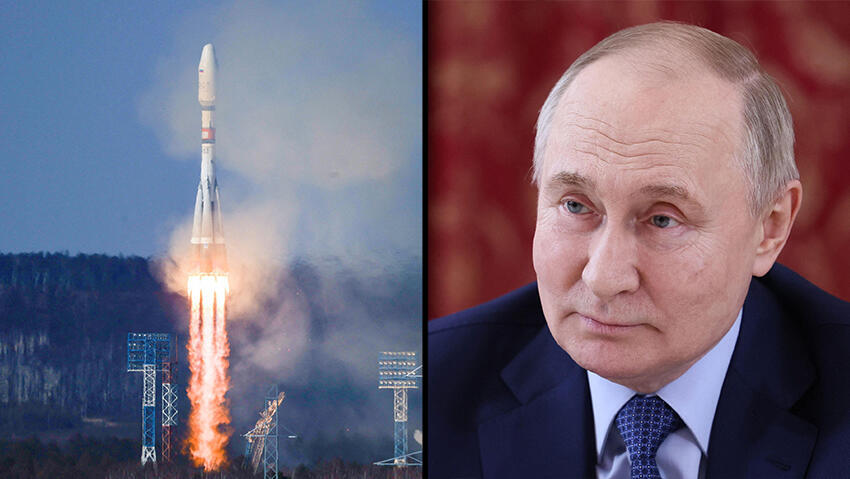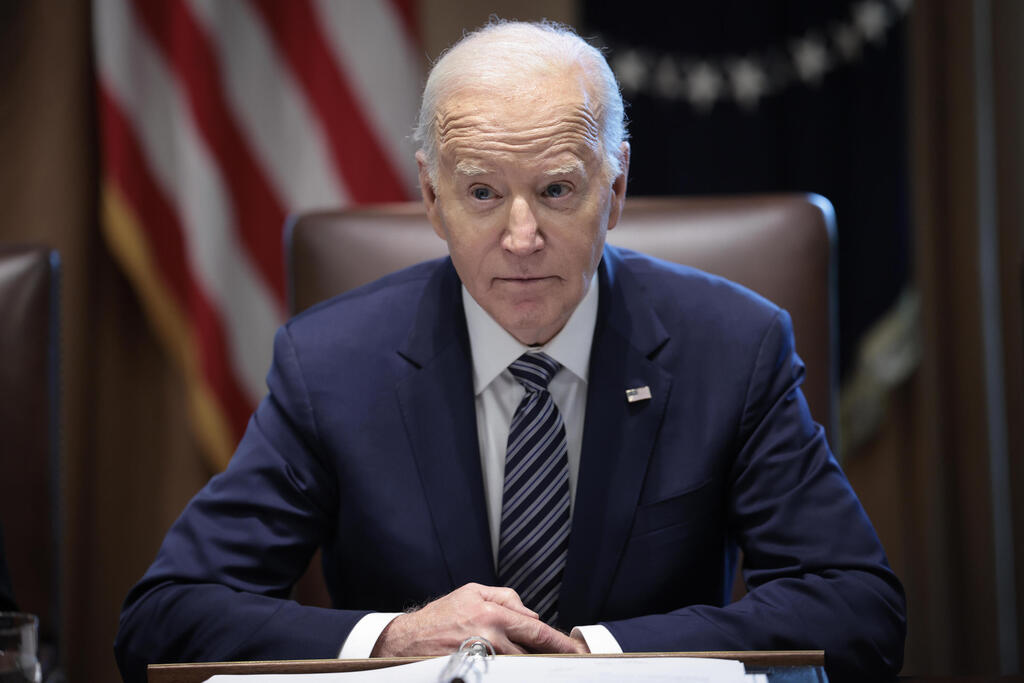According to U.S. estimations, Russia launched a satellite last week capable of targeting other satellites, on a trajectory set to intersect with an American one. This is not a novel move by Putin, as such passive-aggressive maneuvers have occurred in the past. However, with the Iran-Russia-China axis strengthening against the West, this could potentially escalate beyond mere theatrics.
In a speech before the UN Security Council, U.S. Alternate Representative for Special Political Affairs Robert Wood stated that the Russian satellite was launched on May 16 into low Earth orbit.
2 View gallery


Is Russia weaponizing space?
(Photo: Roscosmos/Handout via REUTERS, Mikhail METZEL / POOL / AFP)
"Russia launched a satellite into low Earth orbit that the United States assesses is likely a counterspace weapon presumably capable of attacking other satellites in low Earth orbit. Russia deployed this new counterspace weapon into the same orbit as a U.S. government satellite," the announcement read.
Russian Deputy Foreign Minister Sergei Ryabkov dismissed American concerns. "I don't think we should respond to any fake news from Washington. The Americans can say whatever they want, but our policy does not change from this. Moscow has always consistently opposed the deployment of strike weapons in low Earth orbit," he stated.
Last week's Russian satellite launch follows the White House's warning that Russia is not only weaponizing space but doing so with nuclear capabilities. However, recent reports indicate no nuclear components in Russia's latest space endeavors.
2 View gallery


Russian move could place it on a collision course with the United States
(Photo: Win McNamee/Getty Images)
Despite these reports and Russia's denials, the United States and its allies remain deeply concerned about the potential for Russia to weaponize space. This concern was heightened after Russia vetoed a U.S. proposal to ban all nations from placing nuclear-capable weapons in outer space. "We heard President Putin publicly state that Russia has no intention of placing nuclear weaponry in space. If that were the case, Russia would not have vetoed the resolution," said National Security Advisor Jake Sullivan.
Moscow throws its weight around
In a dramatic display of power, Russian President Vladimir Putin has once again brandished his "nuclear sword." On Tuesday, the Russian military embarked on exercises simulating the use of tactical nuclear weapons. Moscow described this move, announced at the beginning of the month, as a response to "provocative statements and threats from certain Western officials." This likely refers to recent remarks from leaders such as French President Emmanuel Macron, who has hinted at increasing Western support for Ukraine amidst a fierce Russian offensive.
This announcement marks a historic moment, as it is the first time Moscow has publicly disclosed exercises involving tactical nuclear weapons. These weapons, known for their lower yield compared to strategic bombs designed to annihilate entire cities, represent a significant threat.
According to the Russian Defense Ministry, the initial phase of the exercise will focus on "practical training in the preparation for the use of non-strategic nuclear weapons," featuring Kinzhal and Iskander missiles. The Southern Command of the Russian Army, responsible for areas including the Ukrainian border and occupied territories within Ukraine, will conduct these exercises.


